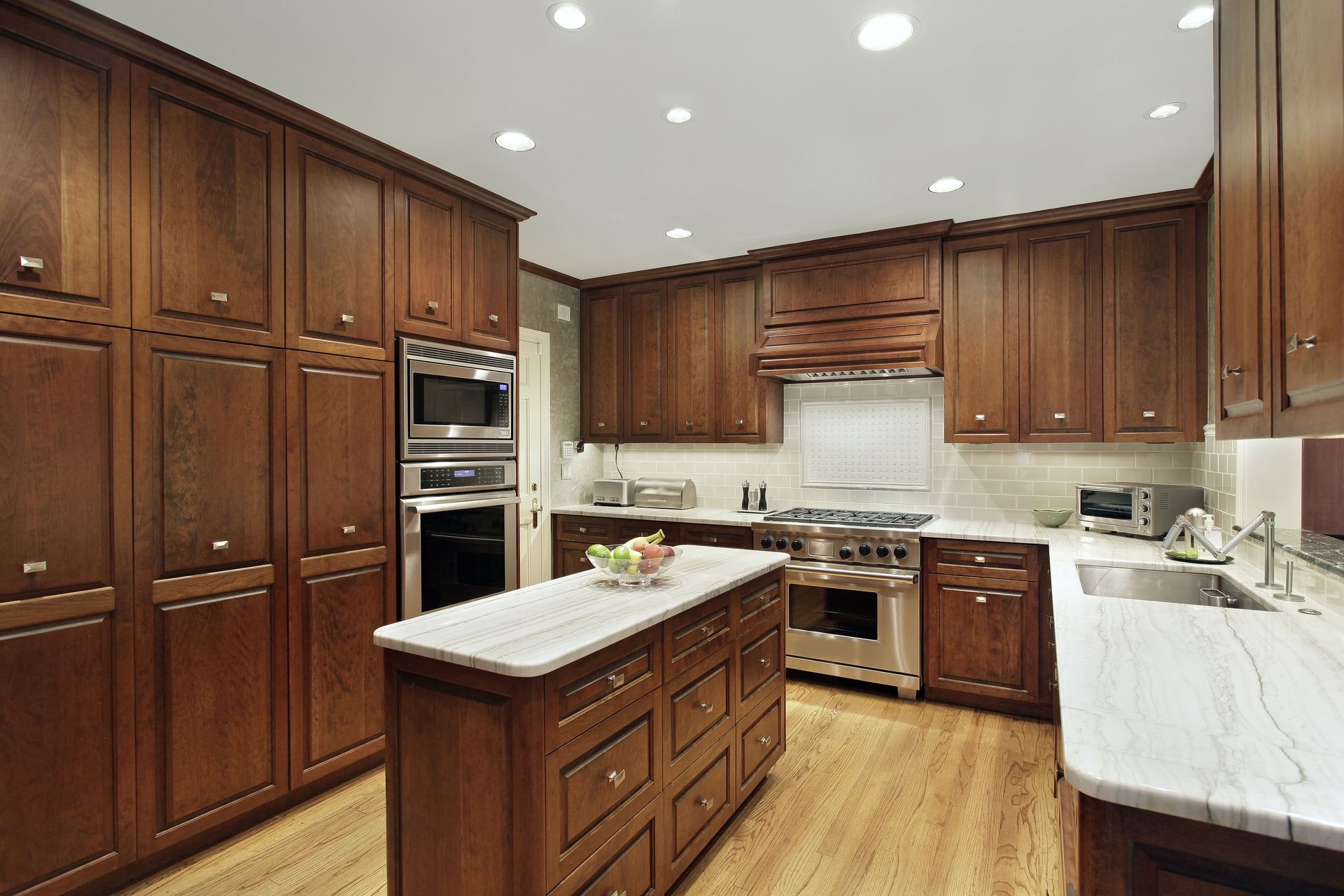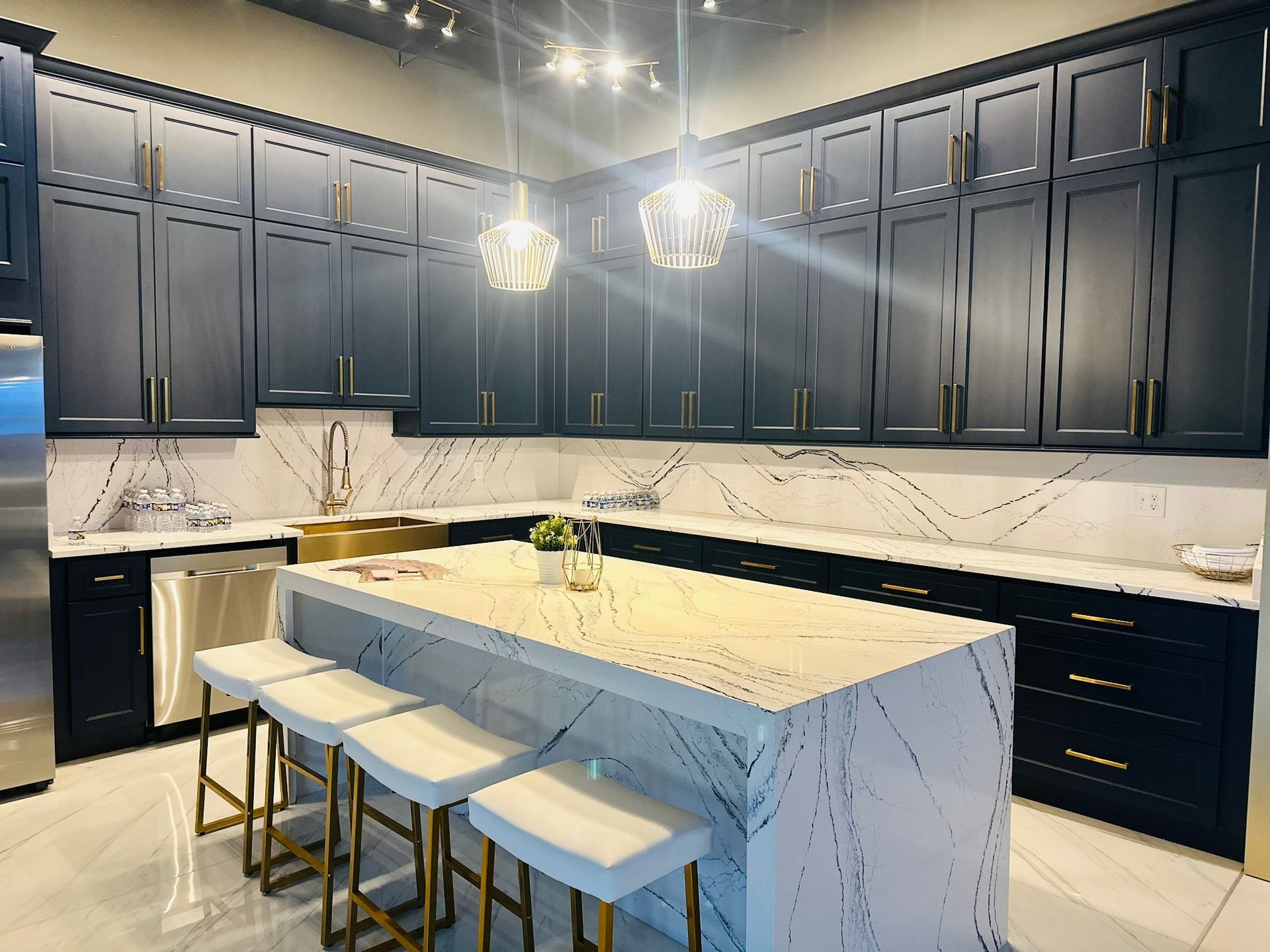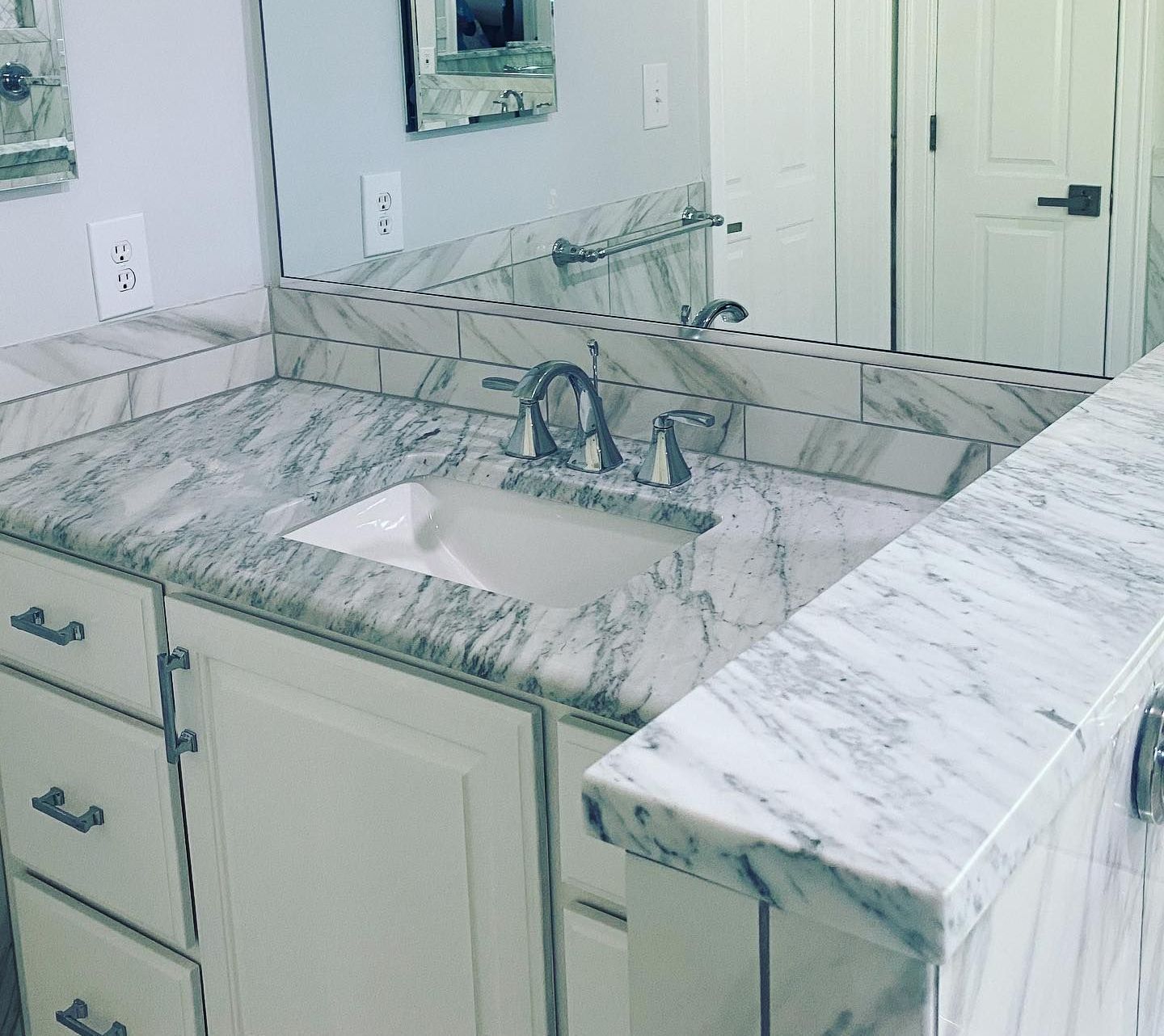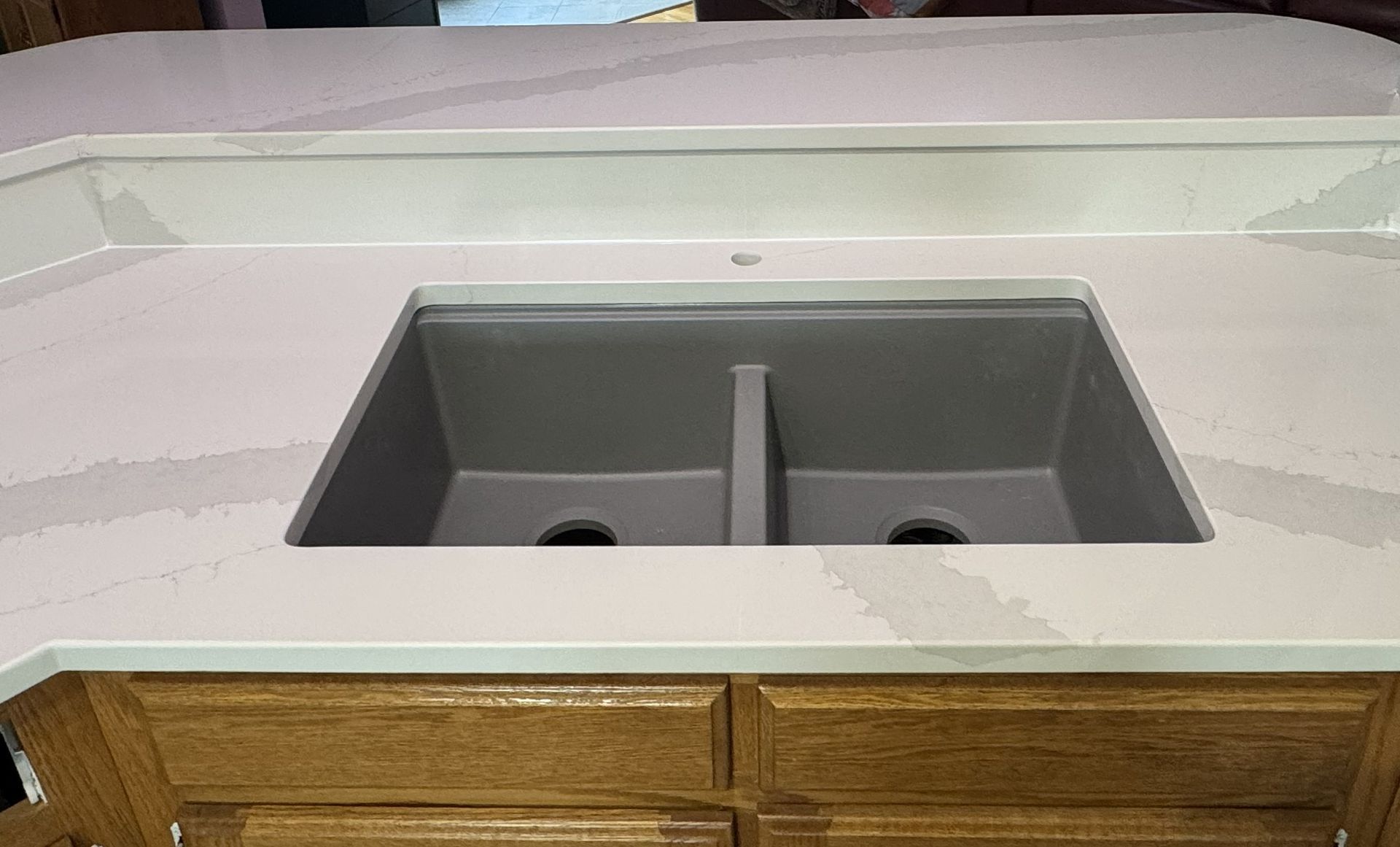6 Things to Expect During a Countertop Installation Project
Installing new countertops can dramatically transform your kitchen or bathroom, improving both aesthetics and overall home value. Whether you're upgrading outdated surfaces or starting fresh with a remodel, new countertops can redefine the look and feel of a space. However, it’s not as simple as picking a material and setting an appointment. The process involves several important steps—each requiring thoughtful planning, clear communication, and collaboration with a professional countertop company. From choosing the right materials to preparing your home for installation, understanding what to expect at every stage can help you stay organized, avoid unnecessary delays, and ensure a smoother, more successful renovation experience.
1. What to Expect During the Planning and Consultation Phase
Every successful countertop project begins with a well-organized consultation. This is the moment to outline your goals—whether durability, style, or ease of maintenance—and communicate them with a trusted countertop company. They’ll help you choose materials that match your priorities and overall design vision.
Establishing a budget is a key part of this phase. According to HomeAdvisor, replacing kitchen countertops offers a strong return on investment, with up to 98.5% of the cost recouped in home value. This makes the project not just a visual upgrade but also a financially smart decision. A reputable countertop company can help you align your design goals with your budget, ensuring you make choices that enhance both style and long-term value without overspending.
Material selection also plays a central role. From granite and quartz to more budget-friendly options like laminate or tile, each surface brings unique strengths. A reputable countertop company will explain how each material performs in terms of heat resistance, maintenance, and longevity. Once the material is selected, this phase also involves establishing a project timeline, helping to manage expectations, and coordinating the next steps.
2. What to Expect During Measurement and Template Creation
After your initial decisions are made, the next step is to take detailed measurements of the installation space. This typically involves a home visit from the countertop company, whose team will use specialized tools to gather precise dimensions. This accuracy is essential for ensuring a proper fit and avoiding installation issues later.
Templates are created based on these measurements. These act as physical guides that outline where cuts will be made in the material, including holes for sinks, appliances, or fixtures. You’ll be asked to review and approve the template layout, which gives you a final chance to make any adjustments before fabrication begins.
At this stage, you’ll also finalize design features such as edge profiles and decorative details. The countertop company will help you make decisions that balance functionality and style while ensuring the final product aligns with the approved templates.
3. What to Expect During Material Fabrication
Once templates are approved, the fabrication phase begins. At this stage, the countertop company sources the chosen raw materials and prepares them for cutting and shaping. Careful selection and inspection of these materials are essential to ensure they meet your design preferences, durability requirements, and overall project standards. Quality control is critical throughout this phase, as any inconsistencies or defects can lead to project delays, misalignment issues, or expensive corrections down the line.
Using the approved templates, skilled technicians carefully cut and shape the materials to match your exact specifications. This highly detailed process may also include incorporating custom features such as integrated sinks, curved edges, backsplashes, or beveled and mitered edge profiles. These details contribute significantly to the finished look and feel of your countertops. A dependable countertop company will rely on advanced tools and experienced fabricators to maintain precision and consistency throughout every cut and contour.
After fabrication, the final product is polished, inspected, and prepped for transport. At this point, logistics and coordination become crucial. Your countertop company will work with installers to ensure that all components are securely packaged and delivered safely to your home. Proper handling during transit helps protect against chips, cracks, or other damage that could compromise the installation. Any errors or carelessness here can undermine the careful work done during fabrication, so meticulous attention to detail remains a top priority.
4. What to Expect During Pre-Installation Preparation
Before the new countertops can be installed, the old ones must be removed. This step requires care to avoid damaging cabinets, plumbing, or surrounding structures. A professional countertop company will handle this process efficiently while protecting your home from unnecessary wear and tear.
This is also the time to inspect the underlying structures. Cabinets may need reinforcement to support heavier surfaces like granite or quartz. Any uneven or unstable surfaces must be addressed before installation begins to prevent alignment issues or long-term damage.
In addition, space should be cleared and cleaned to create an ideal working environment. A tidy, debris-free area helps the installation team work efficiently and minimizes the chance of complications. Your countertop company may also advise you on preparing plumbing and electrical connections ahead of time to avoid delays.
5. What to Expect During Countertop Installation
Installation day marks one of the most exciting stages of the process—when all the planning and preparation come to life. The installation team begins by carefully placing each countertop section onto the prepped base, ensuring that the pieces are properly aligned. Leveling is especially important at this point, as it ensures a smooth, even surface that integrates cleanly with adjacent fixtures like sinks, stovetops, or backsplashes.
Precision is essential, particularly when working with large slabs or intricate cuts. An experienced countertop company will take extra care to secure each piece using professional-grade adhesives and fasteners, checking for stability and consistency along the way. A properly installed countertop not only looks flawless but is also built to endure everyday wear and tear.
Once placement is finalized, installers focus on aligning and sealing the seams. These joints should be nearly invisible to the eye, while the sealant provides vital protection against moisture, spills, and long-term staining. Before wrapping up, the team conducts a full inspection and a walkthrough with you to ensure every aspect of the installation meets expectations. This final review gives you a chance to ask questions, point out any concerns, and feel confident in the quality of the finished product.
6. What to Expect After Installation Is Complete
After your new countertops are installed, post-installation care is essential. First, understand the warranty coverage offered by your countertop company. A reliable provider will offer protection against defects and guidance on maintenance to ensure long-term performance.
Routine cleaning is the cornerstone of proper care. Different materials require different cleaning methods, and your countertop company can recommend the appropriate products. Avoid abrasive cleaners and always wipe spills promptly to maintain both hygiene and surface quality.
Ongoing maintenance involves occasional inspections and small touch-ups as needed. Cracks, chips, or sealant issues should be addressed early to prevent more significant damage. Many homeowners schedule periodic checkups with their countertop company to ensure their investment continues to perform as expected.
A countertop installation project may involve several steps, but it doesn’t have to be overwhelming. When you understand what to expect at each phase—consultation, measurement, fabrication, installation, and post-installation care—you’re better equipped to navigate the process smoothly.
Working with an experienced countertop company is key to success. From helping you select materials to ensuring a flawless installation, the right team will guide you every step of the way. With careful planning and expert craftsmanship, your new countertops can elevate your space and serve your household beautifully for years to come. If you want to add function, beauty, and vibrance to your home, call the countertop experts at MGL Granite Inc!






Share On: